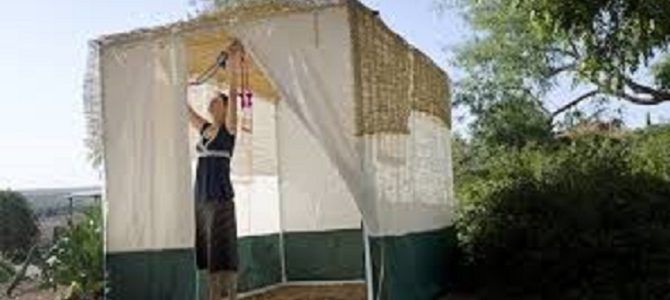Members of the Lithuanian Jewish Community traditionally gather in the Sukkot tent–the sukka–to talk and eat. The happy holiday lasts seven days.
Sukkot (the Feast of Tabernacles or tents) is one of three pilgrim holidays mentioned in the Bible as shalosh regalim. In earlier times it was an agricultural holiday to give thanks for the harvest. The sukka is a tent, the only home Jews knew for the 40 years they wandered the desert after the exodus from Egypt. As a temporary shelter, the sukka also reminds us existence is fragile, and Sukkot is a time when we should appreciate our home and body.
The sukka is a necessary part of the holiday of Sukkot and needs to be built. Jews are supposed to sit in the booth and eat and celebrate. It is celebrated for seven days in Israel. There, where it’s usually warm, people even sleep in the make-shift dwellings and children especially enjoy the holiday. The dwelling place is decorated on the eve of the holiday and it is forbidden to work on the first day of the holiday.
Four species of plant are required and are placed together on a platter or plate and waved around. This is written in the Bible. The species are the fruit of the citron tree, palm fronds, myrtle fronds and willow branches. On the seventh day of Sukkot Jews circle seven times in synagogue reciting the prayer used on that day.



